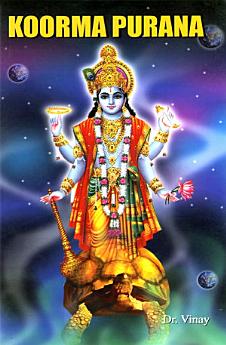Koorma Purana
Diamond Pocket Books Pvt Ltd
4.2star
10 รีวิวreport
eBook
96
หน้า
reportคะแนนและรีวิวไม่ได้รับการตรวจสอบยืนยัน ดูข้อมูลเพิ่มเติม
เกี่ยวกับ eBook เล่มนี้
The Puranas work as guiding inspiration in Hindu life. The stories of Puranas reflect the composite human nature of all times. The lessons of the Puranas are captivating, entertaining and widely followed by the Hindus, so much that it can undisputedly be said that the Puranas are the beacons of Indian ethos. Today, when the old values seem outdated, the stories of the Puranas bring forth the lessons as much the graceful as were in old times. There are 18 Puranas, which tell the tales of vice and virtue, good and evil, religion and irreligion and so on. These are relevant even today. Koorma Purana is one of them. Its text is presented in form of a tortoise's expression of stories and morals out of them. The word 'Tortoise' means 'Koorma' in Sanskrit. According to Hindu scriptures, the Koorma was the metamorphosed form of Lord Vishnu, in his second incarnation. The morals derived from the stories spoken by the Koorma, were actually emanating from metamorphosed Lord Vishnu. The Koorma discusses the Shaiva and Shaakta theories.
การให้คะแนนและรีวิว
4.2
10 รีวิว
ให้คะแนน eBook นี้
แสดงความเห็นของคุณให้เรารับรู้
ข้อมูลในการอ่าน
สมาร์ทโฟนและแท็บเล็ต
ติดตั้งแอป Google Play Books สำหรับ Android และ iPad/iPhone แอปจะซิงค์โดยอัตโนมัติกับบัญชีของคุณ และช่วยให้คุณอ่านแบบออนไลน์หรือออฟไลน์ได้ทุกที่
แล็ปท็อปและคอมพิวเตอร์
คุณฟังหนังสือเสียงที่ซื้อจาก Google Play โดยใช้เว็บเบราว์เซอร์ในคอมพิวเตอร์ได้
eReader และอุปกรณ์อื่นๆ
หากต้องการอ่านบนอุปกรณ์ e-ink เช่น Kobo eReader คุณจะต้องดาวน์โหลดและโอนไฟล์ไปยังอุปกรณ์ของคุณ โปรดทำตามวิธีการอย่างละเอียดในศูนย์ช่วยเหลือเพื่อโอนไฟล์ไปยัง eReader ที่รองรับ




